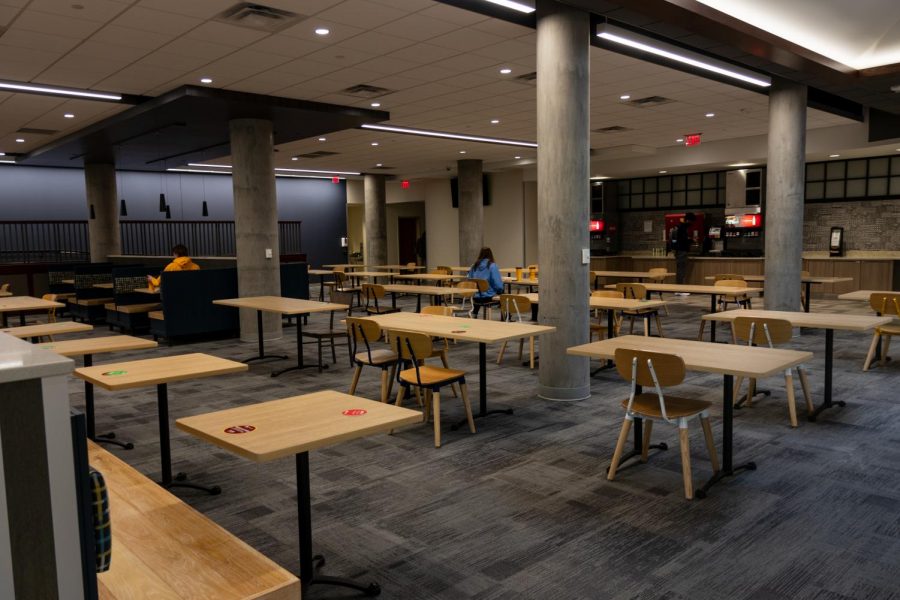The Minnesota Student Association is planning to propose the addition of a smaller meal plan to provide greater flexibility for University of Minnesota students who have expressed concerns about inadequate meal plan options. All University students living in residence halls are required to have a meal plan.
For at least the first two weeks of the spring semester, students are prohibited from eating in the dining hall and can only take meals to-go due to COVID-19 precautions. In the fall, students had to make a reservation if they opted to eat inside the dining hall.
But according to a November MSA survey, difficulties making reservations and few options are driving University students with meal plans to dine elsewhere. The survey found that 39% of students with meal plans are not eating in the dining halls as frequently when compared to past semesters.
In response, MSA’s Campus Life Committee will advocate for a six meal per week option to create a more affordable plan for students while reflecting their dining hall needs. The existing meal plan options are 11, 14 or 19 meals per week.
“We decided that if we could get a decrease to six meals a week plan, that’s going to cut how much you’re paying,” said Emily Roberts, a member of the Campus Life Committee. “And you can use that money that you’re saving for now so that you’re offsetting the cost, instead of not using your meals and paying extra to DoorDash.”
Margaux Granath, director of the Campus Life Committee, said she has also been working to improve meals for students who follow halal and kosher diets.
“Students who follow kosher only have the option to get a kosher frozen meal, which is not very inviting and doesn’t increase retention of Jewish students at the University,” Granath said. “While there’s options around campus, like at Wally’s or at the House of Hummus in Memorial Union, given the pandemic, it’s been really hard for students to access that.”
First-year student Nate Pfeiffer, who has soy and dairy allergies, said campus dining gives him limited options.
According to Pfeiffer, the dining hall does not specifically label whether meals contain soy or dairy. If something says “vegetarian,” he said he has to assume it could contain butter.
To avoid this, Pfeiffer used True Balance, a University service that caters for students with allergens and intolerances. The service provides on-demand allergy-friendly options that students can order ahead of time and pick up to avoid any cross-contamination. True Balance is available at Middlebrook and Pioneer Halls.
However, several times when Pfeiffer would go to pick up his meal, he said the dining hall staff had never received the order. He would then have to wait 20 minutes to receive his meal.
“I just stopped [using True Balance], and I started just figuring out what I could eat [at the dining hall],” Pfeiffer said.
The Campus Life Committee must next present the six meal per week plan in a resolution at MSA’s forum meeting of student representatives.
“I had a few friends who had dietary restrictions and they felt like their options were very, very limited and extremely repetitive. I think that’s another reason why we advocate for a change in the University’s overall dining structure,” said Marina Rajkovic, another member of the Campus Life Committee.



















